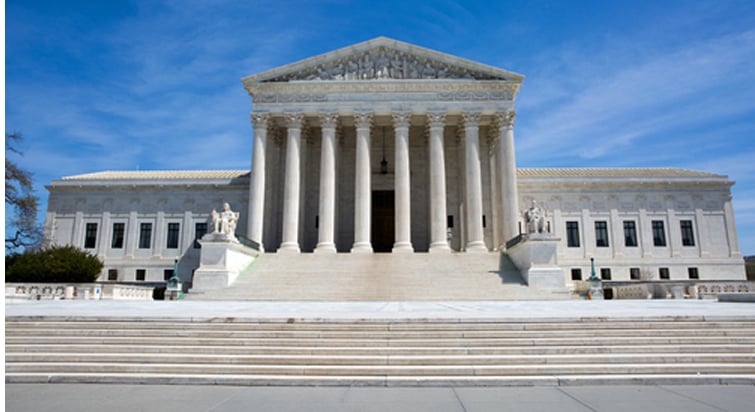Supreme Court to consider whether FBI agents can be sued for money damages for religious freedom violation

Image from Shutterstock.com.
On Friday, the U.S. Supreme Court accepted a no-fly list case to decide whether federal officials can be sued for money damages in their individual capacities for violations of the Religious Freedom Restoration Act.
The plaintiffs in the case are three Muslim men who claim that they were placed on the no-fly list because they rejected requests by FBI agents to spy on their religious communities. Their refusal was based partly on their religious beliefs, say the men, who are either U.S. citizens or lawful permanent residents.
Reuters, Bloomberg Law, SCOTUSblog and Law360 have coverage.
The Religious Freedom Restoration Act says a person whose religious belief is substantially burdened by government may obtain “appropriate relief” in a judicial proceeding against “a government.” The law says the term government includes “a branch, department, agency, instrumentality and official (or other person acting under color of law) of the United States.”
The 2nd U.S. Circuit Court of Appeals at New York had ruled for the plaintiffs, Muhammad Tanvir, Jameel Algibhah and Naveed Shinwar. The government is asking the Supreme Court to overturn the May 2018 decision, which allowed the money damages claim against individual FBI agents.
The government’s cert petition says the 2nd Circuit decision “clears the way for a slew of future suits against national security officials, criminal investigators, correctional officers and countless other federal employees, seeking to hold them personally liable for alleged burdens on any of the myriad religious practices engaged in by the people of our nation.”
When Congress has enacted statutes creating an express cause of action against individual officials for money damages, it has done so in unambiguous terms, the government says. The RFRA law, on the other hand, is ambiguous and should not be construed to allow such claims, the government argues.
The case is FNU Tanzin v. Tanvir. The SCOTUSblog case page is here.



